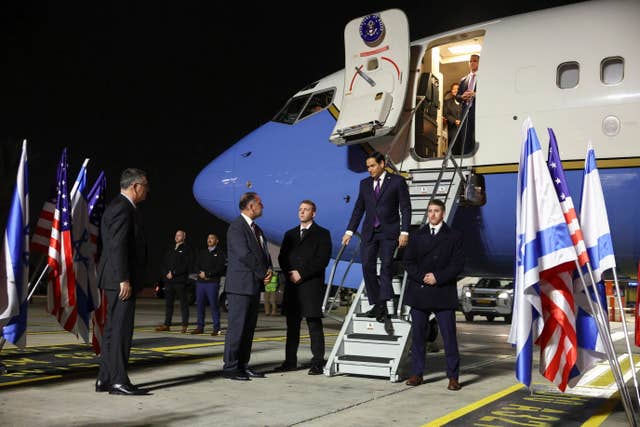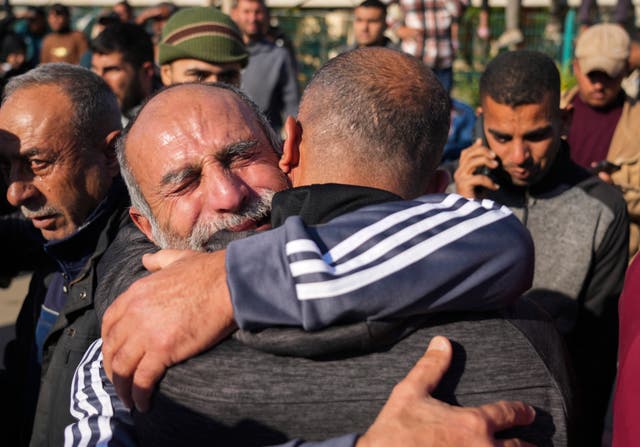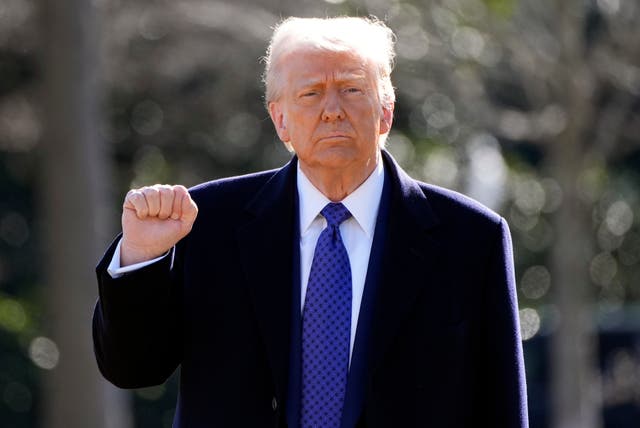Rubio begins Middle East tour as Arab leaders bid to counter Trump’s Gaza plan
US Secretary of State is in Israel on Sunday and will meet Prime Minister Benjamin Netanyahu.

US Secretary of State Marco Rubio is kicking off a Middle East tour in Israel on Sunday, as Arab leaders reel from President Donald Trump’s proposal to transfer the Palestinian population of the Gaza Strip to other countries and redevelop it under American ownership.
On what is Mr Rubio’s first visit to the region as America’s top diplomat, he is likely to get a warm welcome from Israeli Prime Minister Benjamin Netanyahu, who has praised the plan, and pushback from Arab leaders, who have universally rejected it and are scrambling to come up with a counter-proposal.
The fragile ceasefire between Israel and Hamas meanwhile remains intact after a major dispute threatened to unravel it last week. But the sides face a fast-approaching deadline in early March to negotiate the next phase, and the war may resume if they do not reach an agreement.
The Israeli military said it carried out an air strike early on Sunday on people who approached its forces in southern Gaza. The Hamas-run Interior Ministry said the strike killed three of its policemen while they were providing security for the entry of aid trucks near Rafah, on the Egyptian border.

Israel’s Kan public broadcaster has reported Mr Netanyahu has not approved the entry of mobile homes and heavy machinery into the Gaza Strip, as required by the ceasefire agreement. Hamas had threatened to hold up the release of hostages last week over the issue, raising fears the ceasefire could unravel, before proceeding with the release based on what it said were assurances from Arab mediators.
An Israeli official said the issue will be discussed in the coming days and that Israel is co-ordinating with the United States.
Israel’s Defence Ministry meanwhile said on Sunday it received a shipment of MK-84 munitions from the United States. The Biden administration had paused a shipment of such bombs last year over concerns about civilian casualties in Gaza.
In a radio interview last week, Mr Rubio indicated Mr Trump’s proposal was in part aimed at pressuring Arab states to come up with their own post-war plan that would be acceptable to Israel, which says Hamas can have no role in Gaza.
He also appeared to suggest that Arab countries send in troops to combat Hamas, which survived Israel’s devastating 15-month onslaught and remains in firm control of the territory.

But “Hamas has guns”, he added. “Someone has to confront those guys. It’s not going to be American soldiers. If the countries in the region can’t figure that piece out, then Israel is going to have to do it and then we’re back to where we’ve been.”
It is not clear if Mr Rubio will meet with any Palestinians.
For Arab leaders, facilitating the mass expulsion of Palestinians or battling Palestinian militants on behalf of Israel are both nightmare scenarios. Either would open them up to fierce domestic criticism and potentially destabilise an already volatile region.
Egypt says it will host an Arab summit on February 27 and is working with other countries on a counter-proposal that would allow for Gaza to be rebuilt without removing its population, which human rights groups say would likely violate international law.
Egypt has warned any mass influx of Palestinians from Gaza would undermine its nearly half-century-old peace treaty with Israel, a cornerstone of American influence in the region.
Arab and Muslim countries have until now conditioned any support for post-war Gaza on a return to Palestinian governance with a pathway to statehood in Gaza, the West Bank and east Jerusalem, territories Israel seized in the 1967 war.
The Biden administration spent months rallying regional powers behind such plans, but they fizzled as Israel ruled out not only a Palestinian state but also any role in Gaza for the Western-backed Palestinian Authority, whose forces were driven out when Hamas seized power there in 2007.

Mr Rubio will meet with Mr Netanyahu on Sunday before travelling to the United Arab Emirates and Saudi Arabia, regional heavyweights that have rejected any mass displacement of Palestinians and would be key to any regional response.
The United Arab Emirates was the driving force behind the 2020 Abraham Accords in which four Arab states normalised relations with Israel during Mr Trump’s previous term.
The president hopes to expand the accords to include Saudi Arabia, potentially offering closer US defence ties, but the kingdom has said it will not normalise relations with Israel without a pathway to a Palestinian state.
Mr Rubio will not be visiting Egypt or Jordan, close US allies at peace with Israel that have refused to accept any influx of Palestinian refugees. Mr Trump has at times suggested he might slash US aid to the two countries, which could be devastating for their economies, if they do not comply.
He is also skipping Qatar, which along with Egypt had served as a key mediator with Hamas in brokering the ceasefire.
Mr Trump took credit for the ceasefire, which was reached in the closing days of the Biden administration, after his Middle East envoy, Steve Witkoff, joined the talks.
But more recently, Mr Trump has suggested Israel resumes the war if the remaining dozens of hostages abducted in Hamas’s October 7, 2023 attack, which triggered the fighting, are not released sooner than planned.





